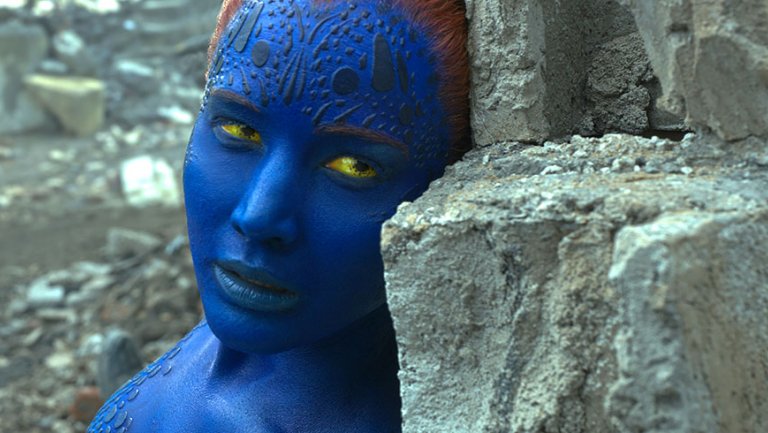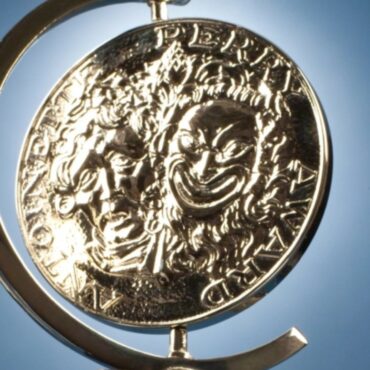chevron_left
-
play_arrow
NGradio So good... like you
share
close
It shouldn’t come as too much of a surprise that Fox is considering a “reset” of the X-Menmovie franchise. As I’ve argued in the past, the series has managed to run its obsessive interest in three recurring characters — Charles Xavier, Erik “Magneto” Lehnsherr and Wolverine — into the ground, so the idea of starting over is an undeniably attractive one. But… what would an X-Men movie reboot look like? What should it look like?
In many ways, zeroing out the X-Men movies to get to a new start right now is a case of weird timing; the comic book incarnation of the franchise has just been announced to be doing that very thing next spring, with a relaunch that echoes, in terminology and title selection at least, the fan-favorite 1990s era that saw the comic arguably peak in terms of sales potential and reader excitement. But that points to a problem for the X-movies, in a way; the X-Men comic franchise has had such specific eras in terms of content that there’s no one storyline or school of thought to point to as a core text to be studied and followed.
Indeed, for what is arguably the property’s critical peak — the issues written by Chris Claremont from mid-1975 through late-1991 — what defined the property was how willing it was to play with its status quo: characters would leave, lose powers, get new looks or new outlooks with little warning, while stories veered from traditional superheroics to faux horror, space opera or soap operatic slice of life leavened with the occasional fight or two for visual appeal. What defined X-Men then, and influenced everything that followed — from more than two decades of subsequent comics to a number of animated TV series and the entire movie franchise to date — was Claremont’s voice: a mix of melodrama and wry humor that never took the material too seriously even as it imbued its cast with an emotional honesty and inner life that easily convinced the fanbase that these characters were more real, more three-dimensional than those found in other comic books.
The same can’t be said of the movies themselves. The franchise features characterization that is, to be polite, one note for its main cast (Can Magneto find the good in himself? Is Wolverine just a killer, or an honorable man? Can Charles get over the loss of his best friend to hatred and violence? Will Mystique be forever trapped in a watered down version of Magneto’s characterization?) and verging on nonexistent for everyone else, while both casts and tonality stay relatively solid between movies. This is perhaps just one sign of what could, and indeed, need to change in any future version of the X-Men cinematic universe. But are there easier (and more specific) fixes than asking for more believable characters and breaking out of the superhero genre every now and then…? Why, yes. Here are three.
Remember the School
The highlights of X-Men: Apocalypse almost entirely revolved around seeing Charles Xavier’s school… be a school. It was the original concept of the X-Men comic book and has anchored subsequent series including New Mutants, Generation X and Young X-Men. The school setting offers the chance to broaden the scope of the franchise beyond “Something Wants To Destroy Humanity And Magneto Is Probably In Favor Of It Until He’s Not”; it gives an opportunity to make characters more relatable, and even have lives that extend beyond whatever that movie’s mission happens to be. More of that would be nice.
Hated and Feared
While there is much that could be complained about when it comes to the diversity of the comic book X-Men(The lack of canonically queer characters beyond a handful, for one thing, or the fact that there are almost as many characters with blue faces as brown ones), it is nonetheless better than the movie franchise, which apparently consists of three white men, one blue woman and a handful of easily forgettable and disposable other characters to fill out the numbers. As has been often pointed out, X-Men is often seen as a metaphor for the struggle of queer or non-caucasian people to exist in modern society. It’d be nice — and, sadly, still all too remarkable and rare — if the movies embraced that by showing us gay, lesbian and non-white characters up on the big screen in leading roles.
The Most Uncanny Heroes of Them All
Perhaps fittingly, given that the first X-Men movie predated — or, perhaps, anticipated — the superhero movie trend, the larger X-Men franchise feels curiously unambitious when compared with Marvel or Warner Bros’ efforts. This isn’t a complaint that could be made of the comics in their prime, which were continually trying new things and rejecting comic book tradition for better or worse. (No-one really needed Obnoxio The Clown vs. The X-Men, let’s be honest.) One would hope that a revitalized X-Men movie franchise would inherently try new things in an attempt to differentiate itself from competitors in a crowded marketplace — it worked for Deadpool, after all — but in case executives at Fox are tempted to play it safe: that’s really not the best look here.
Despite the lukewarm response to X-Men: Apocalypse, there are still things that the X-Men can do that no other superhero franchise manages quite as successfully, not least of which tell stories about the struggle for acceptance that just so happen to feature super powers prominently. There’s a lot of potential left in the big screen X-Men. It’s just a matter of finding the best way to tap into it.
Source: hollywoodreporter.com
Written by: New Generation Radio
Rate it
Similar posts
ΔΗΜΟΦΙΛΗ ΑΡΘΡΑ
COPYRIGHT 2020. NGRADIO





















Post comments (0)